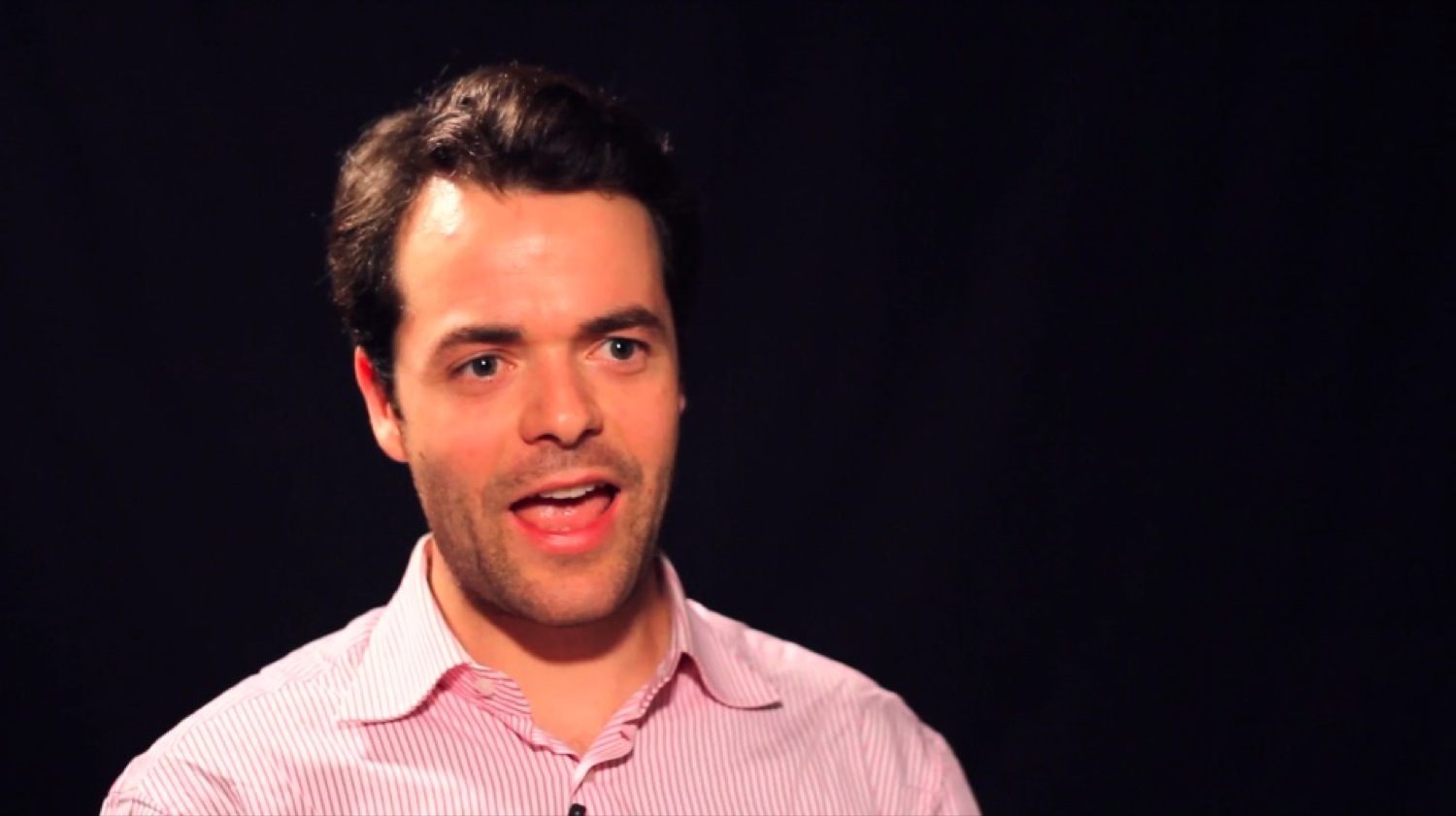In Chapter 6 of 17 in his 2012 Capture Your Flag interview, educator and entrepreneur Michael Margolis answers "How Do You Establish Trust When Building Relationships?" Margolis uses vulnerability, which he cites as the most overlooked part of storytelling. He notes how truth gets attention, empathy establishes connection, and vulnerability reminds people of shared values and similar interests.
Michael Margolis is founder and president of Get Storied, an education and publishing platform dedicated to teaching the world how to think in narrative. He earned a B.A. in Cultural Anthropology from Tufts University.
Transcript:
Erik Michielsen: How do you establish trust when building relationships?
Michael Margolis: So, it’s something that I called the V-factor and it’s actually the most overlooked element of storytelling, it’s vulnerability. So, you have to have truth. Truth is what gets people’s ears to go [make sounds], right? It’s like Scooby Doo time, oh, there’s something over here. I better pay attention. Or, wow, this looks interesting. So, truth gets people’s attention.
Then you have to establish empathy, which lets people know that you really care about them. You care about their world and what they’re going through, right? You really give a crap and you understand what your audience is facing or struggling or challenged with and it all comes home though.
The third principle is vulnerability. So, vulnerability is reminding people that, “you know what, I may be an expert or I may have a solution for you but we’re more similar to each other than different. Here’s what we share in common”, I have my own foibles you know, it’s why -- you know as we sat down I talked to you about, “Geez, the last six months my health has kicked my ass”, right. Very humbling process. When I'm teaching or coaching students, you know, in my programs online, I'm very open about sharing my own personal journey because this is a fallacy – This I think really, in a way it captures the paradigm shift of what we’re all going through in the world of business. It used to be we lived in this world of objective reality. Of being the brand that spoke with the voice of God, “I have all the answers for you. I am the guru”. And instead we’re now shifting into this place where it’s peer-to-peer learning, right. Where we’re all co-learners together. Part of it is things are so challenging and so complex. None of us have like all the answers.
So, we have to be more in relationship with each other. So, it’s really important this vulnerability piece is what makes you human. And here’s the kicker on vulnerability, is if you establish vulnerability with people in an authentic way, you really share a part of yourself and where your edge or your struggle is, do you know what happens? People become more forgiving of the hiccups and the bumps in the road. It’s a really important principle for any brand especially if you're in startup mode, you have a new product, a new service, you’re doing something that’s different. If you wanna build that halo around your brand where people feel emotionally connected, vulnerability is key.
A great case and point is look at Netflix in the last year, they’ve got an awesome product, okay, so they raised their prices from what was it $8.99 to $11.99 and everybody had a shit storm. I think the way that people reacted was actually the way that Netflix talked about it. They talked about the price increase like they were doing us a favor as a consumer and then once sort of the crisis hit they were still -- sort of they came off in a very arrogant fashion, which I think ultimately really hurt their brand. Now, are they bouncing back, are they here to stay? I think so, because ultimately they have a product that many of us want and reflects sort of the new way that we’re consuming media but that’s a really great example to keep in mind the power of the V-factor or vulnerability. And if you can build that halo of having more disclosure, of letting people in sort of behind the curtain, the places where you’re struggling -- not in a poor pity me or [make sounds], okay but in a way that’s relevant, in a way that’s relatable.
Again, by building a brand halo that includes vulnerability, people become so much more forgiving about the bumps in the road. It’s just like being in a relationship with a significant other and let’s say your partner has certain places that are kind of their tough spots, their edge, their place of growth. You’re far more forgiving if you have a partner that’s like, “Yeah, honey you know what? That’s what I'm working on” versus if you have a partner that’s like, “What are you talking about? That’s not my problem, that’s your problem,” right. That same dynamic that shows up in relationships, same thing shows up with brands or, you know, in our own individual relationships with each other and that’s the power of vulnerability when it comes to storytelling.























